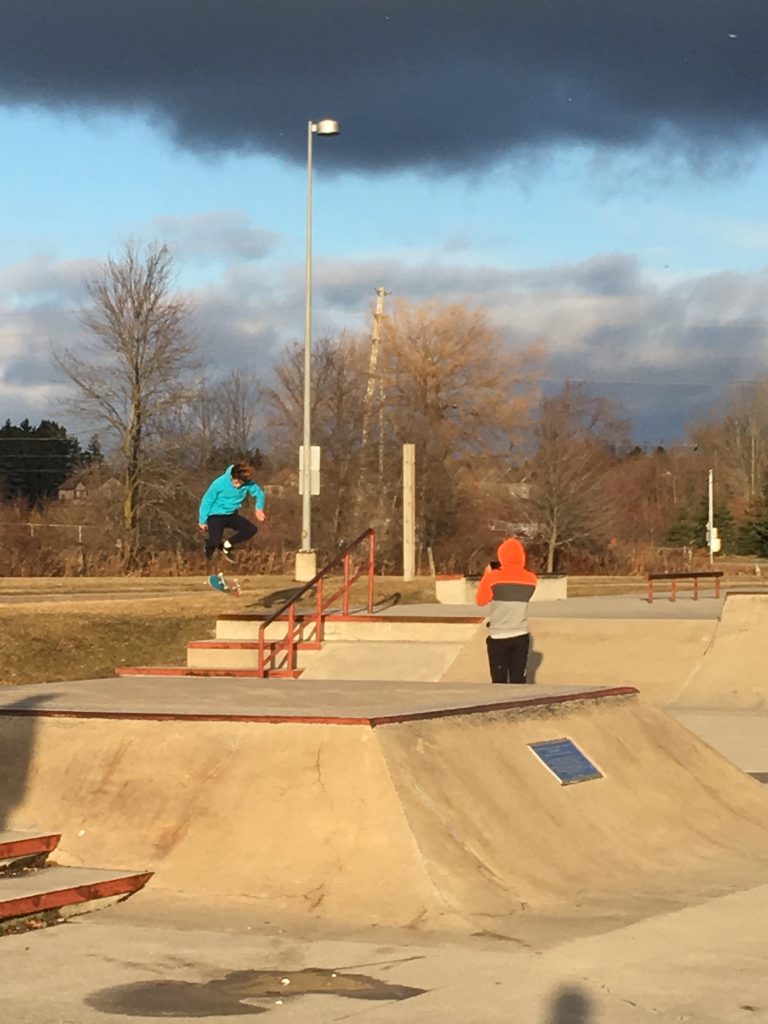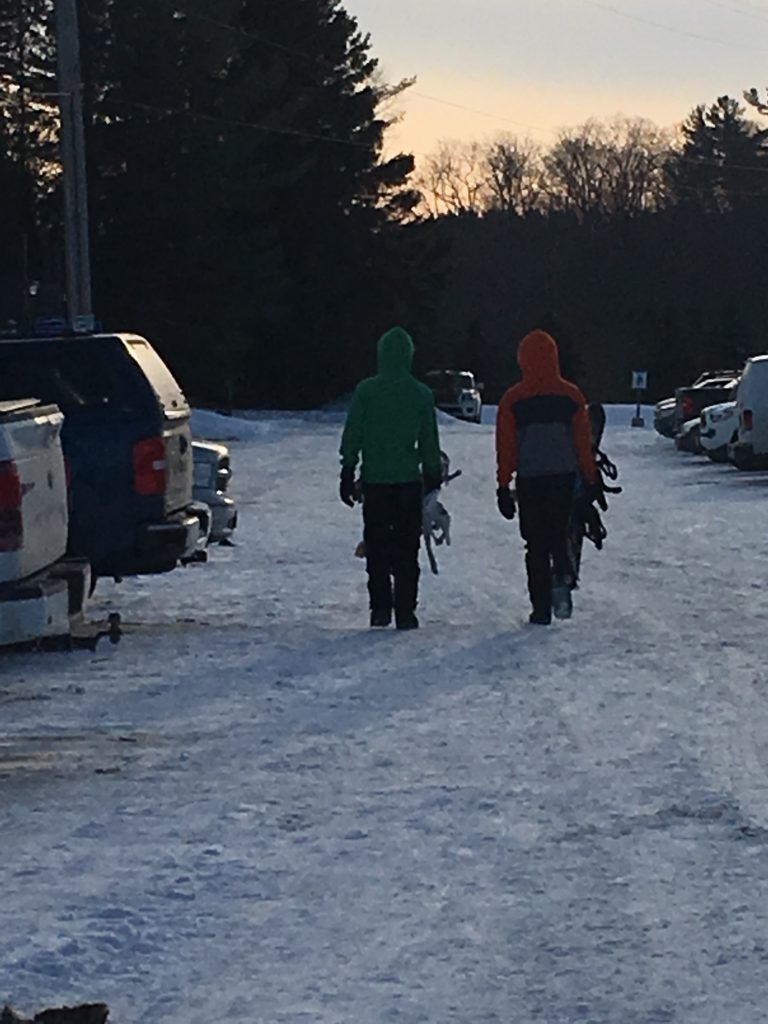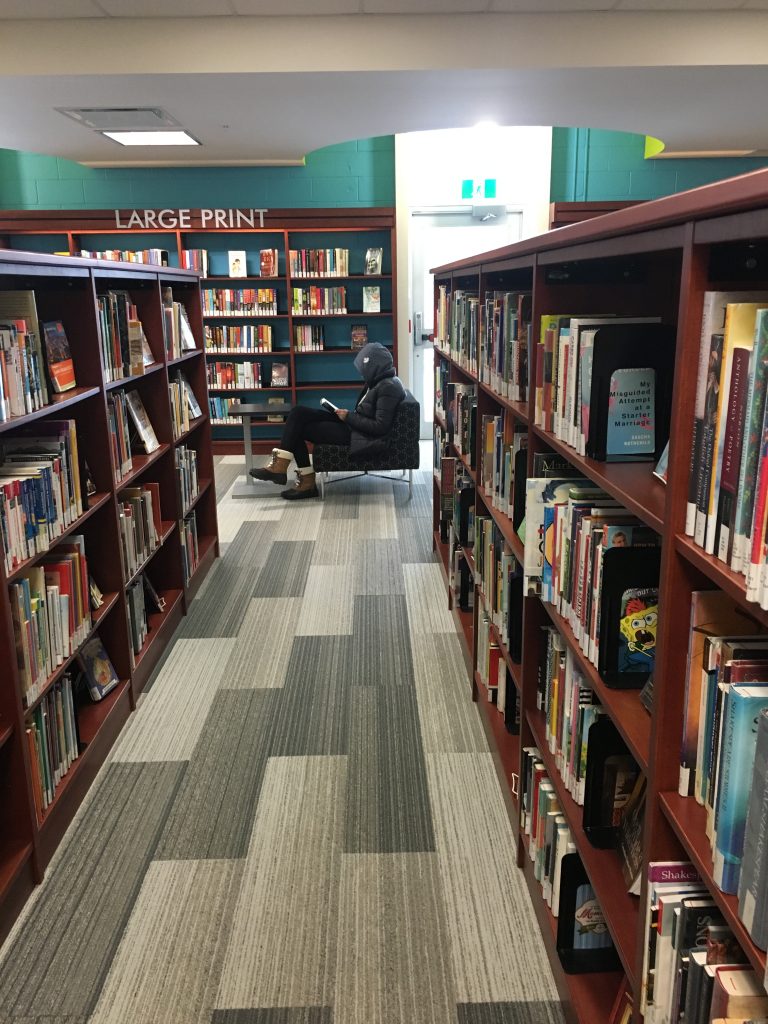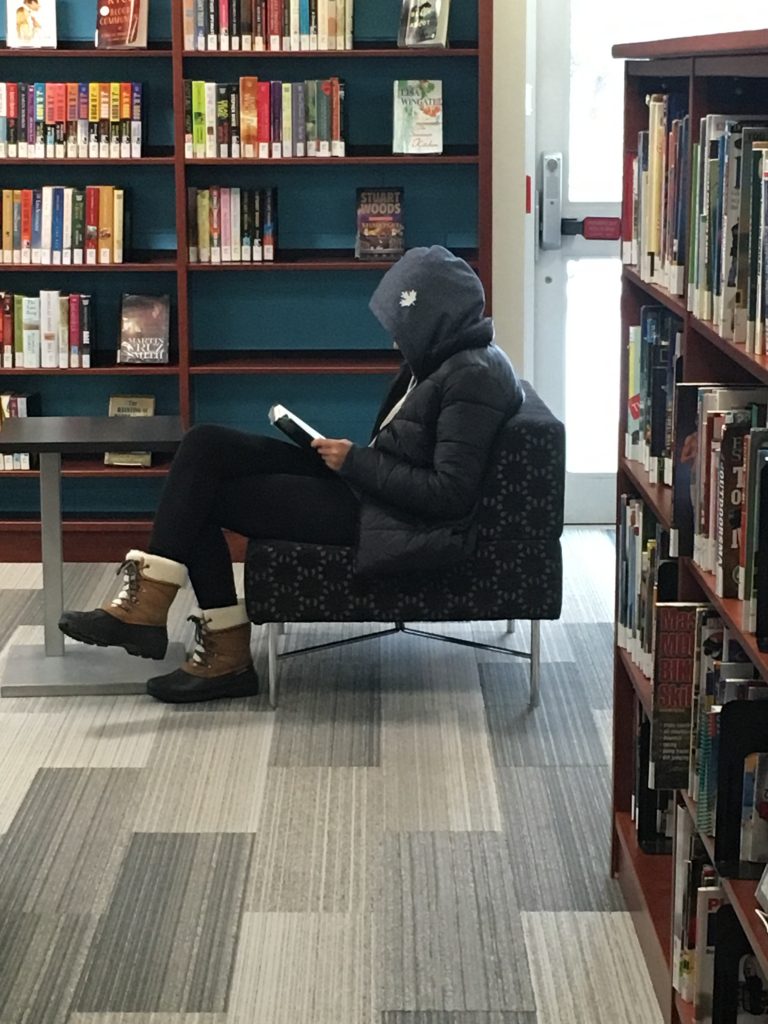I finished my last bite of lunch and put the container in my bag, preparing to head out to drop my daughter and her friend off to their Art class. We were at a library in a community centre the next town over and we had been reading in one of the private study rooms. As the girls headed out to the car, the guys and one of their friends came inside from the skatepark and sunk into the chairs to catch their breath. They each had a package of cookies from the vending machine and sat down with them, unopened. I looked curiously at them each sitting there with an unopened package.
“Oh, we’re not allowed to eat,” S explained.
“Really?” I replied. “The sign in the open part of the library says there isn’t to be eating between 10-12 but it’s already 12:45. We’re in a private study room. I don’t see any sign at all for these rooms.
“Well, one of the librarians told us that we couldn’t eat,” S said matter of factly.
I must have looked surprised. “I wonder if she realizes what time it is. Did she realize you guys were headed into the study room?”
“She definitely did,” M told me. “She told us that we’d better not be thinking of eating these in here.”
“In a very snarky voice,” S added.
Hmmm…
“Alright. I guess don’t eat them for now until we figure it out. I need to head out to take the girls to Art but I’ll check it out with the librarian.”
On the way out, I passed the desk with two friendly librarians chatting with each other. I decided to talk to the one who I thought might have spoken to the guys. I could see her face change when she realized that I had been in the study room with the them and was, in fact, connected with them. Very pleasantly, I told her that I was heading out for a short bit and was wondering if we had the hours and areas of the food restriction mixed up. I explained that my son had come into the study room and said that he couldn’t eat. I also explained that I had actually just been finishing my own lunch when they came in so it would be good to understand for my own purposes.
She laughed nervously, looked sheepishly at the librarian beside her and immediately told me that she had been mistaken. She had told the guys they couldn’t eat and it had been a mistake on her part.
I thanked her, said it was good to know and headed out. When I returned, S informed me that right after I left, the librarian had come in, told them that they could go ahead and have their cookies and apologized for having told them they couldn’t. Nice! I think the apology went a long way. I’m also not kidding myself that it likely wouldn’t have happened if she hadn’t realized I was aware of the situation.
In general, I really like the staff at this particular library. That being said, we’ve had other obvious happenings against the guys. Once the same few were sitting around a circular table in a somewhat isolated, but open (does that even make sense?) area. They were just chatting. I was in an aisle beside them looking for something on one of the bookshelves. I saw a librarian repeatedly walking back and forth and lurking around the corner. Suddenly, she saw me walking toward them, realized I was with them and visibly relaxed.
“Oh, good! You’re with them! I wasn’t sure.” She have me a knowing smirk. I smiled back because, well, that’s my default, but for a second I wondered what she wasn’t sure about.
A few guys, ages 18, 17 and 16 (years past the age of 12 when kids are formally able to be in the library without a guardian) sitting openly around a table, chatting quietly over their laptops, with some skateboards under the table and a basketball neatly placed in a backpack??? But really, I knew what she wasn’t sure about. What she wasn’t sure about is that they are teen boys. Outdoorsy teen boys. Skateboarding teen boys. Teen boys in a small group. Therefore, they are automatically suspect to a certain degree.





This was so interesting to read, Erin. I have noticed how my 8 year old boy is treated by other adults at times and it makes me worry about the not so distant future when he’ll be ‘out on his own’ more. Your examples of what you do to help this situation I’ll have to remember!
My youngest who is 5, he has long, blond hair and is typically mistaken by others as his brothers little sister. It amazes me how others respond differently to him once we correct them and let them know he is a he and not a she. Less gentle, less playful, etc.
There seems to be a lot of work to be done in our society around gender and age.
Ashley, thank you so much for your comment! It’s unfortunate that you notice this at younger ages too. It’s also an interesting observation about how people make assumptions based on things like length of hair and then respond/engage in relation to gender. Yes, I agree there’s some work to be done! I think some of the assumptions about kids and teens come likely have their roots in people seeing large groups of kids together with a low adult:child ratio, often in somewhat disconnected, unsupportive settings and it fuels an expectation. Not sure, but I wonder …
Great article about an under-reported situation. My son is now 24, and works as a snowmobiling guide in the Rockies. As teens, He and his friends were very similar to your son and his friends, and they too experienced open prejudice often. His twin sister and her friends never did. As a culture, we don’t appreciate that most boys and young men need a lot of physical activity as part of their day. We don’t give them places to play, and yet they need it as surely as they need sleep. Thanks for bringing this issue up. I hope as a result of articles like yours, things will change and we’ll give guys the room and respect they need to grow and be.
Heather, I’m sorry to hear your son had a similar experience, but glad to hear that he has such an interesting job! It’s also interesting that your daughter and her friends had a similar experience to mine. It makes me reflect on whether particular personality types are more difficult for other personality types to accept depending on the setting. I absolutely agree about having lots of space and opportunity for physical activity. It’s hard – kids are urged to be active and self-sufficient, but often only within certain framework! Thank you for your comment. 🙂